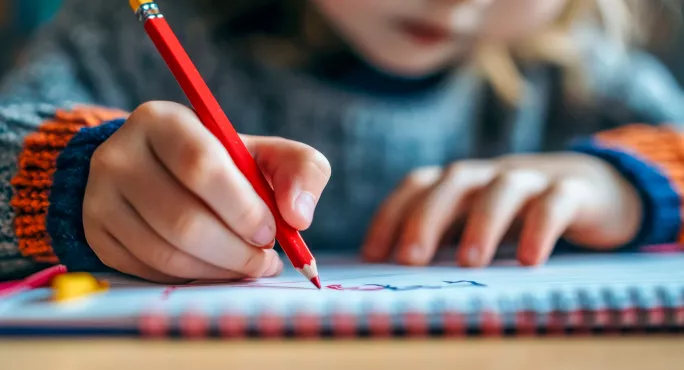Three-quarters of primary school teachers are concerned that children’s ability to hold a pencil, draw or use scissors has worsened over the past five years.
Some 77 per cent of primary teachers have noticed a deterioration in pupils’ ability to perform precise movements since 2020, YouGov polling has revealed.
The findings on fine motor skills come as new data obtained by Tes has revealed major increases in the use of transcribers and scribes for key stage 2 Sats, prompting concerns that primary school pupils’ handwriting standards are deteriorating.
Struggle to cover art in primary curriculum
The survey of 569 primary school teachers also found that respondents are struggling to teach art within the current curriculum.
And just 26 per cent of primary teachers believe pupils are reaching their artistic potential.
It comes after the government pledged to build a National Centre for Arts and Music Education to promote opportunities for pupils to pursue the arts. It is due to be finished in September 2026.
Survey findings show that 76 per cent of teachers agreed that art education is not prioritised in schools, with 18 per cent reporting that they spend no time at all teaching art in an average week.
Just 12 per cent of teachers manage to provide more than 60 minutes of art education weekly.
The concerns come after a coalition of arts and education organisations warned last year that the schools sector is facing an “arts apocalypse”.
Lack of training to teach art
A previous survey showed that the vast majority of primary school teachers (92 per cent) said that a lack of funding had negatively affected creative subjects.
Some 44 per cent of teachers polled by YouGov said that they have access to the right resources and training levels to successfully teach art.
A similar proportion (43 per cent) reported that their teacher training did not give them sufficient confidence to deliver art and design lessons.
Just 20 per cent of primary teachers believe they have adequate opportunities for professional development in art education.
The survey, commissioned by arts provider art-K, also asked primary teachers about how art education can benefit pupils.
Some 71 per cent of teachers said that there is a direct relationship between art activities, handwriting development and mathematical problem solving abilities.
A further 81 per cent of respondents agreed that improving art education would also enhance pupils’ wellbeing.
A Department for Education spokesperson said that the government is “committed to ensuring art, music and drama are no longer the preserve of a privileged few”.
They added: “Our Curriculum and Assessment Review seeks to deliver a rich and broad, inclusive and innovative curriculum, and our new National Centre for Music and Arts Education will promote opportunities for children and young people to pursue their artistic and creative interests in school.”
For the latest education news and analysis delivered every weekday morning, sign up for the Tes Daily newsletter





